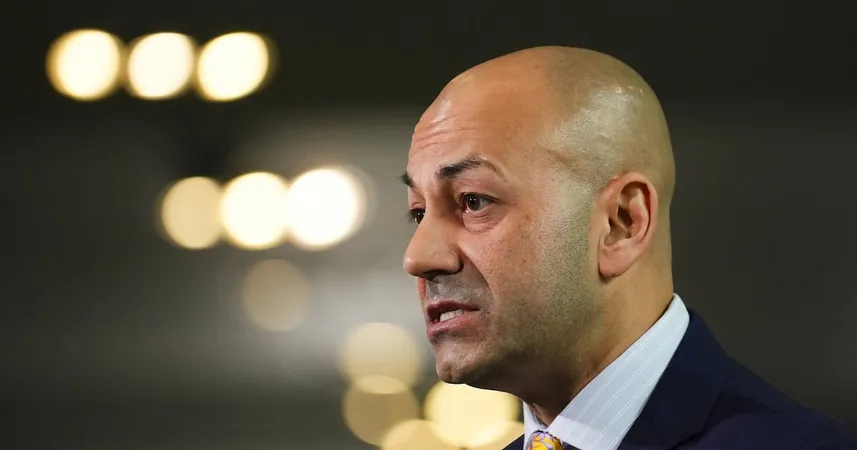
Trump’s Bold Grocery Price Reduction Plan: Experts Weigh In on Its Potential Success!
2025-01-13
Author: Emma
In a shocking turn of events for American consumers, the United States Department of Agriculture (USDA) reported that food prices soared nearly 10% in 2022 - marking the fastest increase in over four decades. Unfortunately, the trend didn’t stop there, as costs continued to rise by almost 6% in 2023. Although the pace of price hikes slowed down in 2024, many Americans still experienced sticker shock while grocery shopping or dining out.
Recognizing this economic challenge, President-elect Donald Trump has vowed to tackle the rising grocery bills head-on, aiming to provide relief for American families. To gain further insight into Trump’s ambitious proposal, we reached out to financial experts to delve into whether his plan might actually work.
Trump’s Strategy to Slash Grocery Prices
While Trump concedes that reducing grocery prices poses a formidable challenge, he insists it’s achievable through addressing supply chain issues and enhancing domestic energy production. He pointed out that farmers require substantial energy to plant, cultivate, and harvest their crops, with additional fuel costs incurred during transportation to retailers.
Trump theorizes that if the nation boosts fuel production, this will subsequently drive down gas prices. The savings that farmers and transporters achieve are expected to ultimately benefit consumers at the checkout line.
Expert Opinions on Trump’s Vision
We consulted two certified financial planners (CFPs) who offered their perspectives on the various dimensions of Trump’s plan:
Energy Production Perspective
Lamar Watson, the founder of Dream Financial Planning, expressed skepticism regarding the potential success of increasing energy production. He emphasized that despite U.S. energy reaching historic highs, it hasn’t resulted in lower energy prices. “Major oil companies prioritize maximizing shareholder value over lowering consumer prices. They simply don't want prices to fall too low, as it would devalue their essential assets—proven reserves of oil and natural gas,” Watson stated.
Moreover, he noted that energy costs only account for about 10% of grocery prices, suggesting that labor costs constitute the primary expense for companies. “Even if we see a dip in fuel prices due to increased production, the impact on grocery prices will be minimal,” he added.
Evaluating Supply Chain Dynamics
Regarding supply chain management, Watson explained that Trump is limited in his influence. "Private companies dominate the supply chain, and there is little incentive for middlemen to reduce prices if it means lower profits for themselves," he said. “Even if changes are initiated, the positive effects on grocery prices would not be seen quickly. It’s a long-term challenge that requires significant restructuring.”
What the Future Holds for Grocery Prices
As Trump gears up for his presidency, the effectiveness of his grocery price reduction strategy remains to be seen. Experts caution that while his intentions are commendable, the reality of market dynamics and corporate incentives could pose substantial roadblocks.
American consumers continue to hope for relief as they navigate the complexities of grocery shopping amid fluctuating prices. Will Trump’s plan make a dent in the problem, or is it simply a pie-in-the-sky promise? Only time will tell!









 Brasil (PT)
Brasil (PT)
 Canada (EN)
Canada (EN)
 Chile (ES)
Chile (ES)
 Česko (CS)
Česko (CS)
 대한민국 (KO)
대한민국 (KO)
 España (ES)
España (ES)
 France (FR)
France (FR)
 Hong Kong (EN)
Hong Kong (EN)
 Italia (IT)
Italia (IT)
 日本 (JA)
日本 (JA)
 Magyarország (HU)
Magyarország (HU)
 Norge (NO)
Norge (NO)
 Polska (PL)
Polska (PL)
 Schweiz (DE)
Schweiz (DE)
 Singapore (EN)
Singapore (EN)
 Sverige (SV)
Sverige (SV)
 Suomi (FI)
Suomi (FI)
 Türkiye (TR)
Türkiye (TR)
 الإمارات العربية المتحدة (AR)
الإمارات العربية المتحدة (AR)